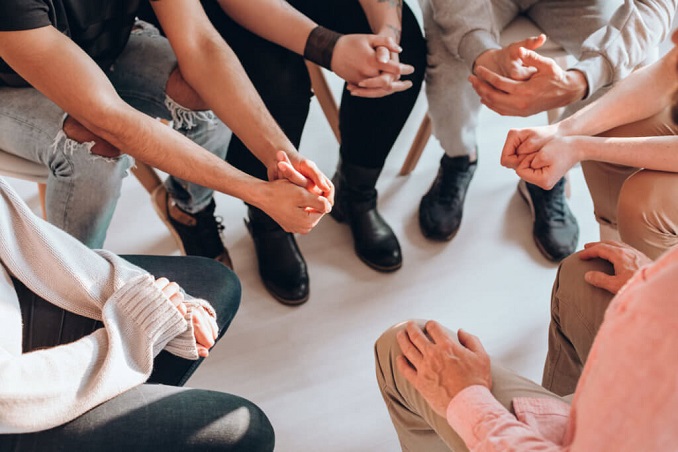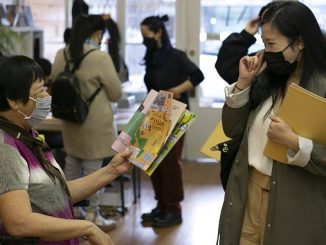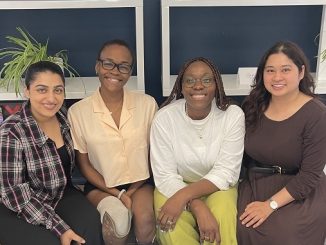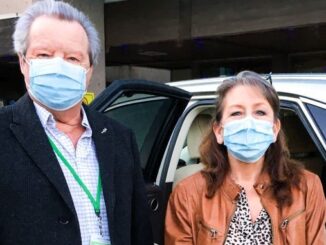CoSA, which stands for Circles of Support and Accountability, is a remarkable and yet, misunderstood, volunteer-run organization that operates in Vancouver and the Fraser Valley, dedicated to the rehabilitation and reintegration of individuals with a history of sexual offences. Numerous studies show that the program works, and with the utmost commitment to fostering safer communities, CoSA is a beacon of hope and transformation. Upon the release of sex offenders from prison, CoSA extends a compassionate hand, offering them a chance to rebuild their lives while minimizing the risk of reoffending. We spoke to Tina Gonzalez, the Assistant Coordinator for CoSA, to discuss this program more.

Describe your charity/non-profit/volunteer work in a few sentences.
We mentor and support released sex offenders so that they are able to reintegrate into the community. We focus on public safety so that they don’t reoffend. There are recent studies that show over 80% of those who attend the CoSA program go on to be productive members of society and do not reoffend, so it works. We currently have 25 circles operating across Vancouver and the Fraser Valley that have helped protect the community. Often, the offenders have no support when they get out of prison back into the community, so they’re most likely to go back to their former life and former way of thinking. We’re an intervention program. We teach them how to proceed with different thought patterns and lower the chance of risky behaviour. Chances are, they may not have any support or family, so the spiral can get worse. Isolation can be a huge factor in them reoffending and our program aims to solve that. The studies show we have high success with the program.
When did you start/join it?
I have been here for two years, and I believe in the program. I know it works, the studies show that it works, and I know that it serves the community. I was hesitant to get into it, as sex offenders are often the most reviled offenders, even in the structure of prison society. In other terms of thinking, though, they’re the most shunned people, and are often afflicted with societal issues such as poverty, undiagnosed mental illness, and drug abuse… no one takes charge of sex offenders. They are a target population that no one pays attention to. There is value in putting in the time to give these people a second chance in life, basically, and in doing that, we keep the community safe and have somebody who is more productive in society, instead of the potential to revictimize. We’re happy to see the transformations happen. They get back on their feet. A lot of them come from dysfunctional families or abuse cycles, so it’s hard to get out of that mindset unless someone intervenes. We call them our core members. We struggle with needing volunteers. We work close to those coming out of prison.
What made you want to get involved?
Initially, a friend of mine who was a volunteer invited me, though I was hesitant though in the beginning. Then when I thought about it more, there were not too many people who would want to put their time and effort in. I expanded my thinking and got out of my comfort zone. When you talk to these people, they’re just wounded individuals that need help. They’re similar to addicts, what they’ve done is not right and we hold them accountable in our circles. It’s not about supporting them in their decision, it’s about helping them find mechanisms so that they don’t re-offend. Their parole officers are supportive of CoSA and see the turnaround in their clients. We aid them in getting the tools to contribute to society instead of harming it.
What was the situation like when you started?
Throughout the years our volunteer base has fluctuated due to several core members ageing out of the program, some of them having been volunteering for well over 20 years, so we gain a little but lose a lot. We’re trying to get more people interested or see that is a proactive way to do something about someone being released into the community instead of shunning it. We’re making sure the community is safe and we’re helping to transform somebody’s life.
How has it changed since?
Three things stick out in mind,
1. Increase the volunteer base, so we launched a volunteer program in September.
2. Build awareness.
3. Funding.
What more needs to be done?
We need to stop seeing these people as discarded members of society.
How can our readers help?
Volunteer with us!
Do you have any events coming up?
A lot of volunteers are faith-based, so we do work with several churches. We tap into various organizations like the Rotary Club, and societies like that so that we can get our word out. We are fine speaking out on this unique cause wherever asked to.
Where can we follow you?
We’re working on our online presence, but our website has a wealth of information.




